AFTER YANG (2021)
In a near-future, a family reckons with questions of love, connection, and loss after their A.I. helper unexpectedly breaks down.
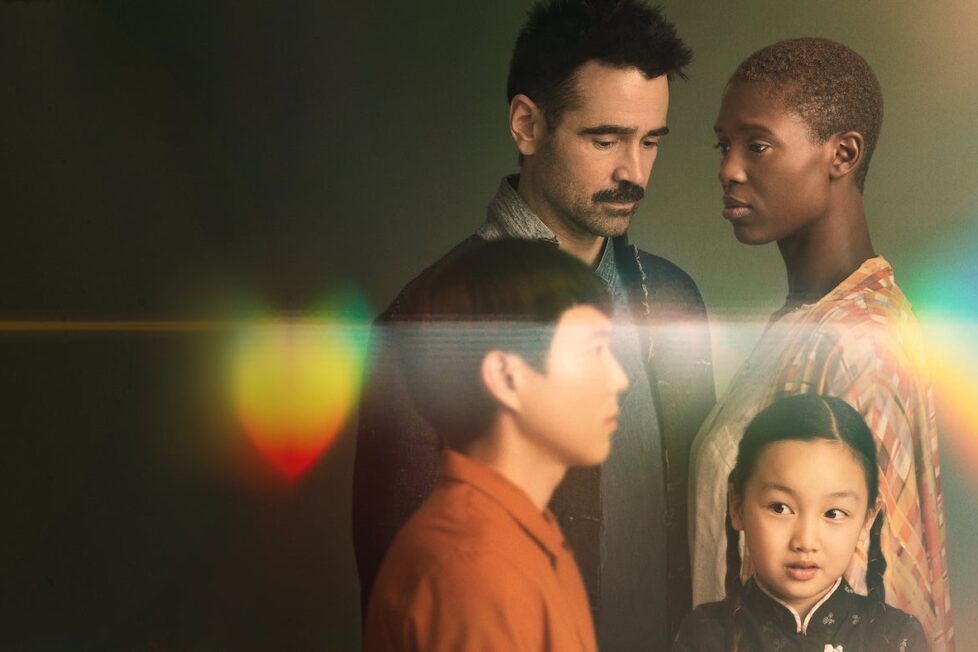
In a near-future, a family reckons with questions of love, connection, and loss after their A.I. helper unexpectedly breaks down.


After Yang is a thoughtful look at families and what makes us human. Written and directed by Kogonada (Columbus), it centres on a family’s malfunctioning android Yang (Justin H. Min), who was acquired from a company called Second Sibling to keep their daughter company.
Jake (Colin Farrell) and Kyra (Queen & Slim’s Jodie Turner-Smith) adopted precocious Mika (Malea Emma Tjandrawidjaja) from China, and Yang teaches her how to accept her past and blend it with her future in America. He beautifully teaches this little girl how to be human, despite being a machine himself, but the fact Yang’s a ‘technosapien’ has no impact on how Mika feels about him or how he feels about life.
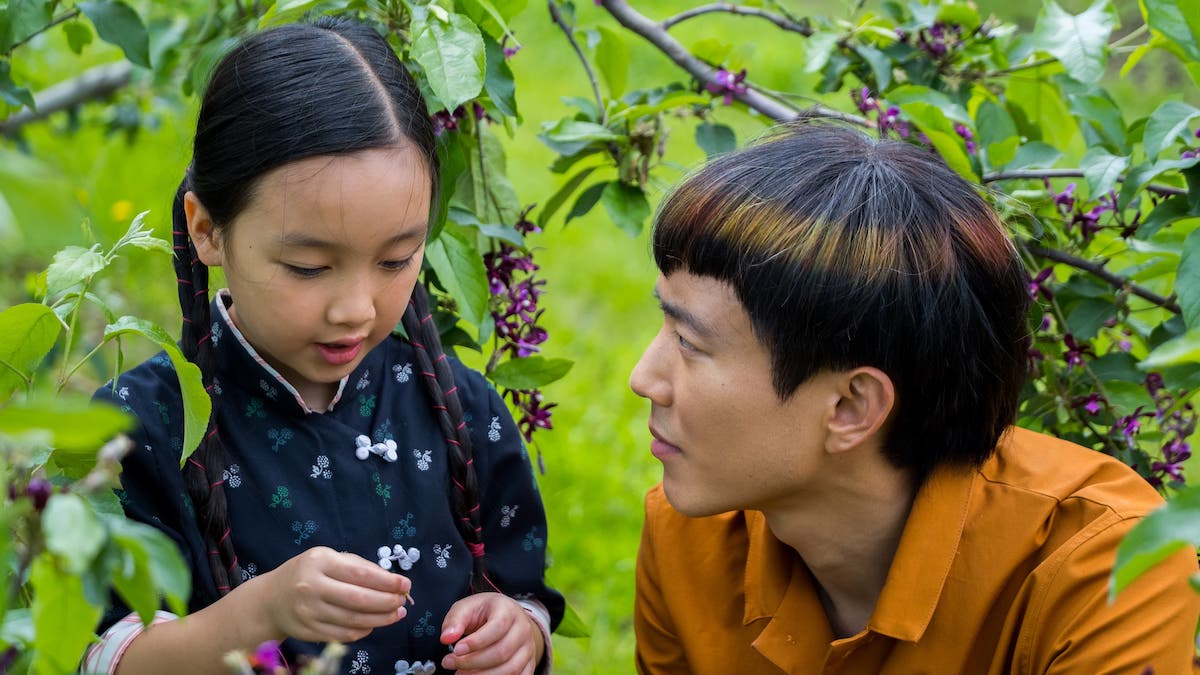
Under pressure from Kyra to fix Yang before their distressed daughter gets even more upset, Jake takes her robotic big brother to an unauthorised repair shop run by conspiracy theorist Russ (Ritchie Coster), who believes androids are equipped with spyware. Any other film would explore this element of the story, but Kogonada has no interest in making a sci-fi thriller.
Soon Jake becomes determined to repair Yang, who’s not under guarantee because he was purchased secondhand. But when searching for a fix, he uncovers Yang’s memories and they encourage him to reconnect with his family because he’s been going through the motions with them, and yet seeing his own daughter through the memories of an android makes him want to reconnect.
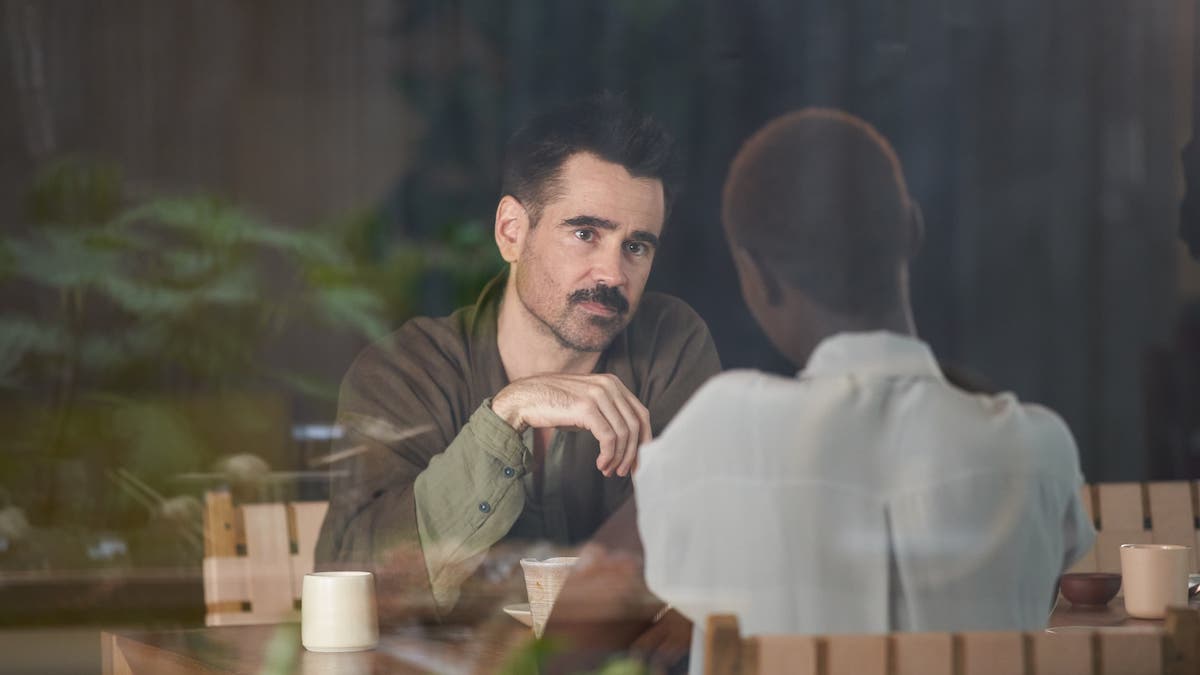
After Yang also explores memories and how fickle they can be. Did what Jake sees happen or are they just Yang’s memories recorded before a physical breakdown? Jake doesn’t just see what was in front of him but also discovers the android had a relationship with a woman called Ada (an underused Haley Lu Richards) and that he pondered his own death. Museum curator Cleo (Sarita Choudhury) wants these memories to be added to a permanent exhibit on technosapiens, forcing Jake to choose whether memories of his family should be made public.
At the start of the movie, Yang is treated like a household appliance. They ponder his guarantee and talk about where to get him replaced, and whether there are still spare parts available for his model. As Jake starts to learn about a new side of Yang, he learns he’s a person, not just a robotic companion for his daughter. Yang has feelings and desires just like anyone else, he wasn’t just programmed that way. It’ll make one consider how disposable people have become, whether in the workplace, in relationships, or society itself.
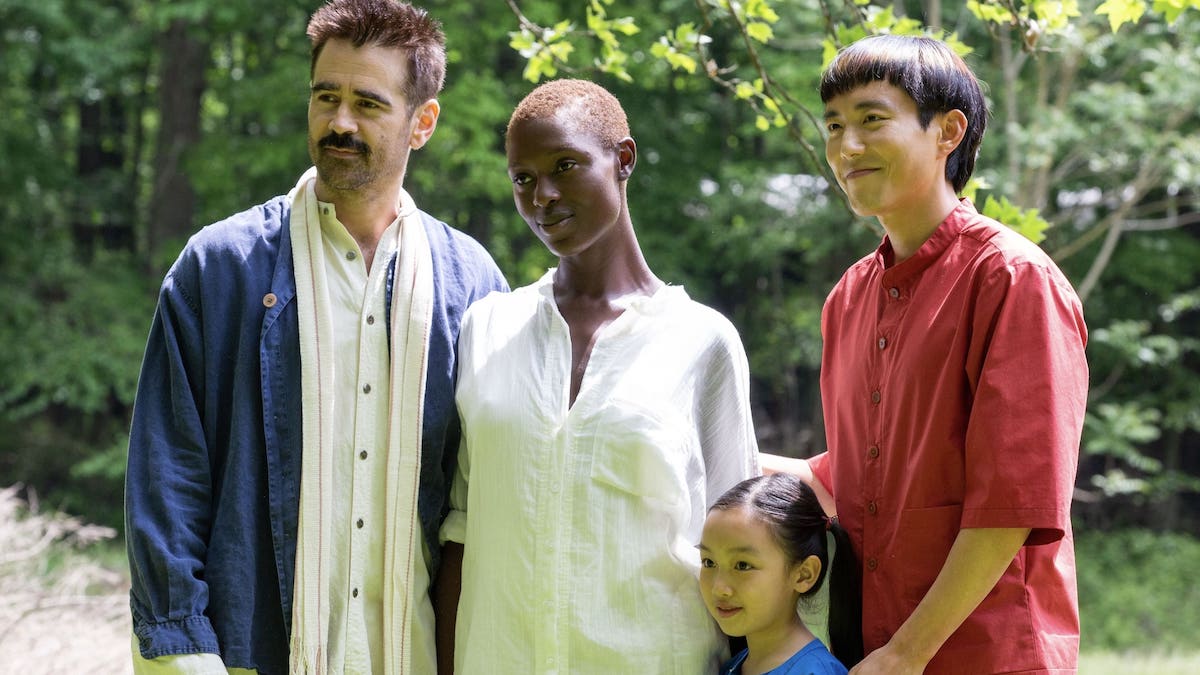
Colin Farrell has such internalised charm as Jake, a once absent father who realises he’s missed so much of his daughter’s life. It’s a gentleness Farrell has showcased before in Saving Mr Banks (2013) and The Killing of A Sacred Deer (2017). His journey is mirrored by his nine-year-old daughter, played with the perfect mix of heartfelt and preoccupies by Tjandrawidjaja. Turner-Smith is more underused as Kyra, appearing like a ghost of Yang’s memories, but she doesn’t play an important role in one of the most poignant scenes.
Much like Columbus, Kogonada has an awareness of spaces and symmetry that perfectly suits this near-future world. The shapes and camera work smartly shape the emotive simplicity of After Yang. Using a minimal colour palette, After Yang is an incredibly relaxing film. The mix of composer Aska Matsumiya’s score, an original theme by Ryuichi Sakamoto and a recurring cover of “Glide”—a song from the Japanese cult movie All About Lily Chou-Chou about teens searching for meaning in a tech-obsessed world—are a little overwhelming in this rather calming world.
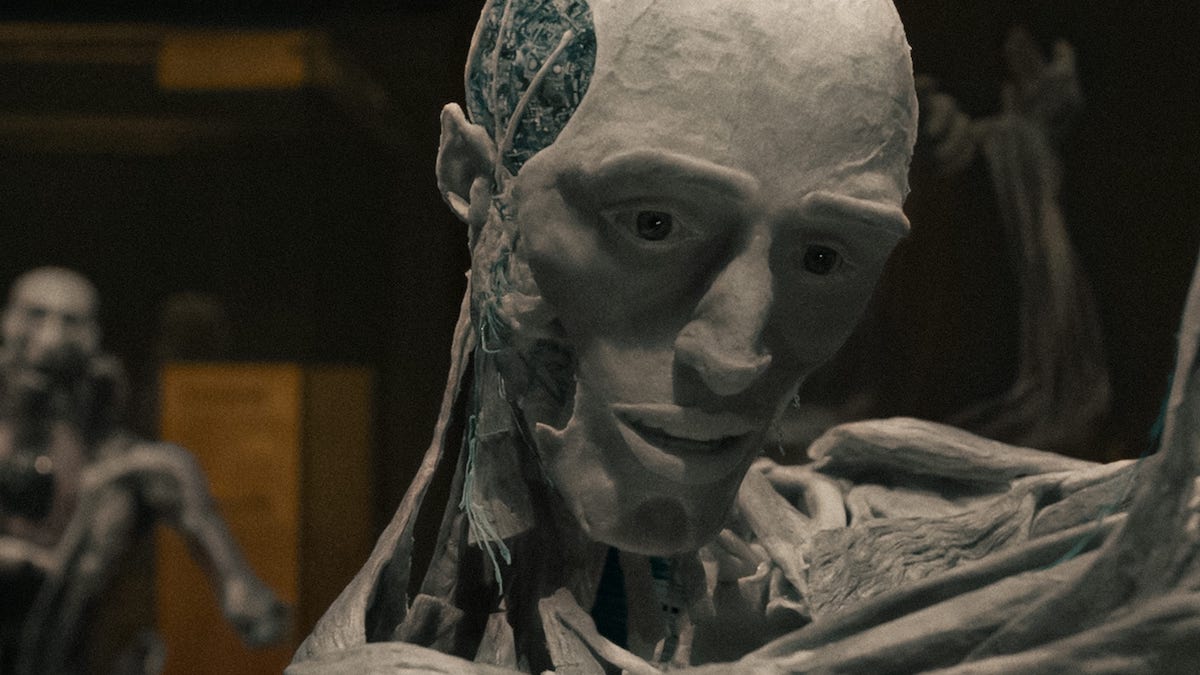
After Yang dedicates time other films spend on the plot to ponderous exchanges about the properties of tea, the roots of family trees, and the origins of China. These may seem like random exchanges between characters, but they’re a wistful exploration of social constructs. There’s a restraint to the writing and performances and the bigger brushstrokes of life are painted with a light hand, in an industry where questions are too easily answered.
This is a slowly unfurling story anchored by emotion. If you don’t pay attention, you may miss the beauty of After Yang. It’s not a flashy film and outside of the main concept, little happens, but it poses big questions. The questions and themes that you bring up will depend on your reading of the plot and the characters.
USA | 2021 | 96 MINUTES | 2.35:1 | COLOUR | ENGLISH

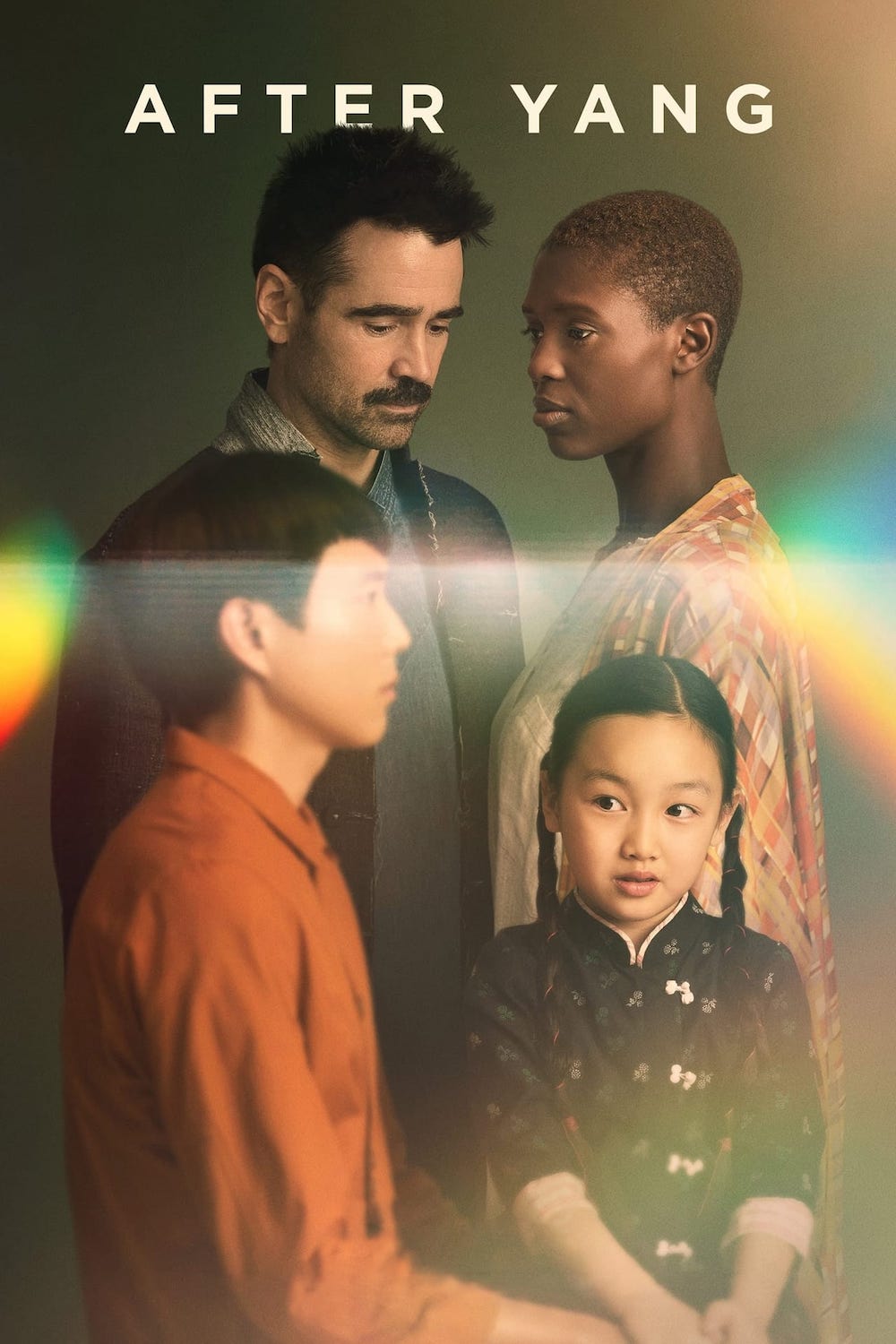
director: Kogonda.
writer: Kogonda (based on ‘Saying Goodbye to Yang’ by Alexander Weinstein).
starring: Colin Farrell, Jodie Turner-Smith, Malea Emma Tjandrawidjala, Justin H. Min, & Haley Lu Richardson.
